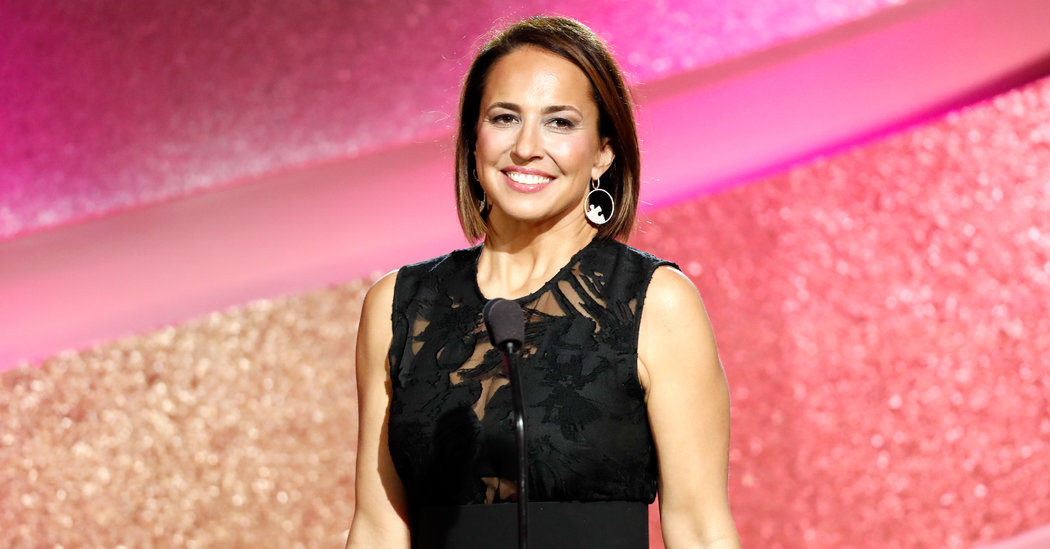
Hearst Magazines announced today that Anne Fulenwider, the editor in chief of Marie Claire, would leave her post at the end of the year. Aya Kanai, the chief fashion director of Hearst, has been named the new editor of the women’s magazine, and will start in January.
Ms. Fulenwider has been the top editor at Marie Claire since 2012, when Joanna Coles left the post for Cosmopolitan. One of Ms. Fulenwider’s chief accomplishments was establishing the Power Trip, a 36-hour networking blitz that connects female entrepreneurs, executives and investors in New York and San Francisco.
“I’ve been so inspired by this generation of women that’s disrupting and creating industries,” Ms. Fulenwider, 47, said in a telephone interview. “Their energy and sense of possibility is infectious.”
So inspired, in fact, that she plans to join them. Ms. Fulenwider said that she is leaving the magazine world to build a start-up dedicated to women’s health.
In recent years, a handful of star editors at women’s magazines have left their posts for jobs in entertainment and other industries. Ms. Coles, who rose to chief content officer at Hearst, left the company in 2018; she is an executive producer of “The Bold Type,” which centers on work at a Cosmopolitan-like title, and this year she signed a deal for a new program with ABC.
When Teen Vogue shuttered its print publication in 2017, its telegenic editor, Elaine Welteroth, began expanding the brand’s live events. It wasn’t long before she left to become her own brand, with a book deal, frequent speaking engagements and regular roles on “Project Runway” and the red carpet preshow for the E! network.
Ms. Fulenwider’s new venture is a bit further afield from her work in magazines. She said that after the death of her mother, in 2016, she took stock of her career and goals.
“I’ve been intrigued by the health care world and what the rest of my life will be,” she said. “Watching the women in my family go through various health issues, an idea started percolating.”
Last fall, through a mutual friend, she met Ankur Jain, a partner at Kairos, an organization that provides funding and resources to start-ups dedicated to solving problems like access to affordable housing and child care. (The Kairos board includes the president of Hearst and the C.E.O. of The New York Times.)
“I was drawn to the mission-driven nature of what they’re doing,” Ms. Fulenwider said.
Around the same time, she met Monica Molenaar, a founder of Seed + Mill, a company that makes tahini from organic sesame seeds. Ms. Molenaar and Kairos are co-founders of Ms. Fulenwider’s venture, about which she would not say much.
“I’m at such early stage that I can’t talk that much more about what I’m going to be doing,” she said.
Ms. Fulenwider’s contract with Hearst is up at the end of the year. In September, she met with Kate Lewis, the chief content officer of Hearst. “She said, ‘I think I’m ready to go,’” Ms. Lewis recalled in a phone interview. “I was shocked.”
Like many print publications, Marie Claire’s circulation has declined in recent years, from 3.9 million in 2012 to 3.3 million this year according to MRI-Simmons, an audience ratings service that takes into account print and tablet subscriptions.
Between 2016 and 2019, MRI-Simmons estimated that the magazine’s audience growth was “essentially flat.” (By comparison, according to the same firm, the readerships of Vogue, Allure and InStyle dropped in that period.)
As nearly every publisher of print media by now knows, the newsstand is no longer the priority. “Our goal for the print magazine is to generate buzz and interest,” Ms. Lewis said. “There are so many factors that play into what makes circulation grow, things that are outside of the control of editors in chief. What we need to do is make sure that our brands are impactful, that they’re germane to our lives.”
Higher circulation numbers, she added, “won’t be the mark of success as much as, ‘Does this brand continue to be influential and inspiring, does it continue to spark conversation?’”
Ms. Kanai, 42, intends to increase Marie Claire’s global perspective, which has 29 international editions. “As a first-generation American, a global point of view comes naturally to me,” she said. “The issues that we see for women in this country — reproductive rights, sustainability, climate change, the wage gap, entrepreneurship — they’re global issues.”
Ms. Kanai previously worked for Shopbop, an online clothing store and subsidiary of Amazon, and she wants to make Marie Claire’s digital imprints more “shoppable,” in part to compete with Instagram and other social networks.
Ms. Kanai and Ms. Lewis said they plan to continue the Power Trip in its current form and start “power hours”: one-off meet-ups for female entrepreneurs in various cities.
“I hope I can get an invitation to the Power Trip in a different capacity,” Ms. Fulenwider said.







